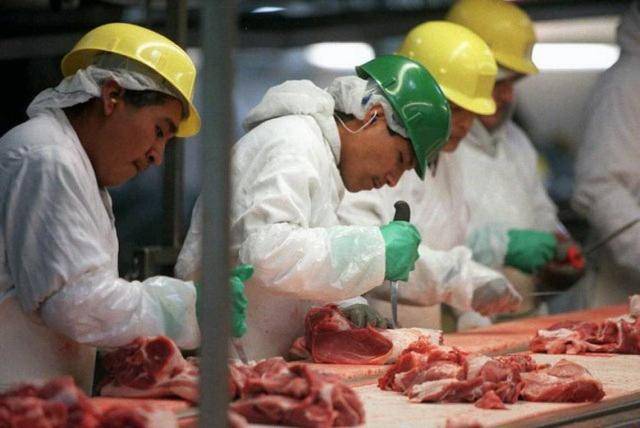Smithfield Foods Announces Job Cuts in Beaver County: A Deeper Look into the Impact
Less than two years ago, Smithfield Foods was a major employer in central Utah’s Beaver County, providing jobs to a significant portion of the local workforce. However, in December, the Virginia-based pork giant made a distressing announcement – it was terminating contracts with 26 Utah hog farms, resulting in the elimination of over 70 jobs tied to these contracts. While this news came as a blow to county employees, it was not entirely unexpected. This marks the second substantial reduction in Smithfield’s operations in as many years, prompting Beaver County to respond differently this time around.
Read: Smithfield Exit Shakes Up Utah Farmers’ Future
The Shift in Beaver County’s Response
Beaver County, which had been hit hard by Smithfield’s previous cutbacks, responded proactively to this latest development. Jen Wakeland, Beaver County’s strategic development director, emphasized that the county immediately engaged with state-level offices to address the challenges presented by the job cuts.
Smithfield’s Reasons for the Cutbacks
Smithfield cited reasons for the reduction in its Utah operations, attributing it to factors such as an oversupply of pork in the industry, weakening consumer demand, and rising feed prices. The company’s announcement mentioned the termination of contracts with 26 out of 28 Utah-owned pork farms, along with the consequent loss of 75 jobs, constituting over a third of the remaining 210 jobs in Utah.
The Fallout on Farmers and Employees
The termination of contracts affects not only Smithfield employees but also the 26 farmers who had relied on these agreements as their primary source of income. The farmers, who will soon be without jobs, also employ their own staff. Smithfield offered buy-outs, but the details were not disclosed, leaving the farmers with the difficult task of starting anew.
Read: Smithfield Foods cuts farmers contracts
Impact on Subcontractors and Contract Farm Employees
The repercussions extend to subcontractors and contract farm employees, whose numbers are harder to quantify. Beaver County Commissioner Tammy Pearson estimates that several hundred people have been directly impacted by both rounds of Smithfield’s layoffs, even if they were not direct Smithfield employees.
A Severe Economic Blow
Beaver County heavily relied on the pork industry, with most of the region’s hog products sold in 2021 originating from the county. Smithfield’s cuts are expected to significantly affect these figures, causing financial distress for many.
A Way of Life in Jeopardy
For the affected farmers, this loss is not just financial but also marks the end of an entrepreneurial way of life. Pearson expressed her concern that these individuals, who once owned their own businesses, will now have to find new opportunities or become employees elsewhere.
Beaver County’s Response
Unlike the initial round of layoffs, Beaver County was better prepared this time. The county began diversifying its economy after the first wave of layoffs, securing projects that would bring new and more diverse job opportunities. Beaver County’s response included the creation of an Economic Shock Dashboard, directing people to various resources and actively promoting job listings.
New Economic Prospects
Despite the challenges, Beaver County remains optimistic about its economic future. Unitech Manufacturing recently announced plans to bring jobs and a manufacturing facility to the area, marking the first official operation in the county’s inland port project area. This endeavor is expected to offer both short-term and long-term opportunities for growth.
Hope for the Future
While change takes time, Beaver County is hopeful about the new opportunities on the horizon. Pearson commends the state’s efforts to support rural Utah and anticipates some challenges as the county adapts to its changing economic landscape. Beaver County remains committed to shaping its future amid the ongoing transformations.
